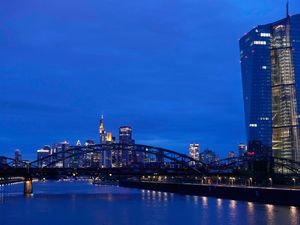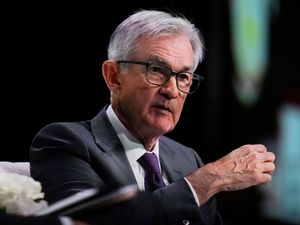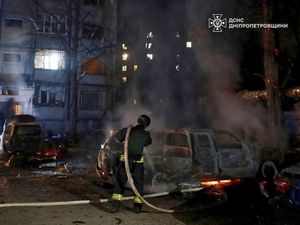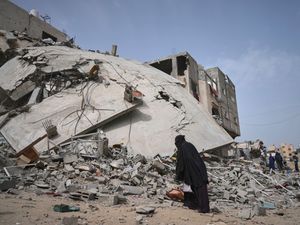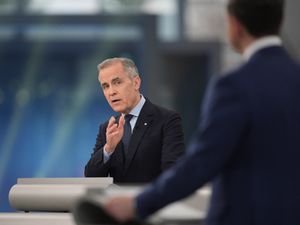Iran and US agree to further talks over Tehran’s nuclear programme
Iran’s foreign minister said the next round of nuclear talks with the US will be on Saturday April 19.
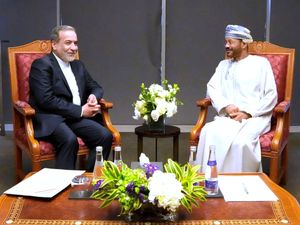
Iran and the United States will hold more negotiations next week over Tehran’s rapidly advancing nuclear programme, Iranian state television reported on Saturday at the end of the first round of talks between the two countries since President Donald Trump returned to the White House.
Iran’s foreign minister later said the next round of nuclear talks with the US will be on Saturday April 19.
Iranian state TV also said US Middle East envoy Steve Witkoff and Iranian Foreign Minister Abbas Araghchi “briefly spoke in the presence of the Omani foreign minister” at the end of the talks, marking a direct interaction between the two nations locked in decades of tensions.
In a statement released on Saturday afternoon, the White House described the discussions as “very positive and constructive”, while conceding the issues that need to be resolved “are very complicated”.
“Special Envoy Witkoff’s direct communication today was a step forward in achieving a mutually beneficial outcome,” the White House said.
The two sides spoke for more than two hours at a location on the outskirts of Oman, ending the talks around 5.50pm local time. The talks began at around 3.30pm local time.
No overall agreement had been immediately likely from the initial talks, but the stakes of the negotiations could not be higher for these two nations closing in on half a century of enmity.
US President Donald Trump has repeatedly threatened to unleash air strikes targeting Iran’s nuclear programme if a deal is not reached.
Iranian officials increasingly warn that they could pursue a nuclear weapon with their stockpile of uranium enriched to near weapons-grade levels.
Flight-tracking data analysed by The Associated Press (AP) showed that a private jet from Pulkovo Airport in St Petersburg, Russia, arrived in Oman on Saturday morning.
US Middle East envoy Steve Witkoff had just met Russian President Vladimir Putin on Friday there.
Meanwhile, Iran’s Foreign Ministry released footage of Tehran’s top diplomat, Mr Araghchi, meeting Omani foreign minister Badr al-Busaidi.
Iran’s state-run IRNA news agency reported that Mr Araghchi provided Iran’s “stance and key points for the talks to be conveyed to the US side”.
AP journalists saw a convoy believed to be carrying Mr Witkoff leave the Omani Foreign Ministry on Saturday afternoon and then speed off into the outskirts of Muscat.
The convoy went into a compound, and a few minutes later Iranian Foreign Ministry spokesman Esmail Baghaei wrote on the social media platform X that the “indirect talks” had begun.
“These talks will be held at a location planned by the Omani host, with representatives of the Islamic Republic of Iran and the United States seated in the halls and sides, conveying their points of view and positions to each other through the Omani Foreign Minister,” Mr Baghaei wrote.
About an hour later, Mr Baghaei appeared on Iranian state television and acknowledged the talks had been going on all that time.
“The objective of the Islamic Republic of Iran is very clear – we have only one goal, and that is to safeguard Iran’s national interests,” he said.
“We are giving a genuine and honest opportunity to diplomacy, so that through dialogue, we can move forward on the nuclear issue on one hand, and more importantly for us, the lifting of sanctions.”
Mr Baghaei added: “Look, this is just a beginning. So it is natural that, at this stage, both sides will present their foundational positions through the Omani mediator. Therefore, we do not expect this round of negotiations to be lengthy.”
There was no immediate acknowledgment from the US government about the talks starting.
Mr Araghchi earlier spoke to Iranian journalists.
“If there is sufficient will on both sides, we will decide on a timetable. But it is still too early to talk about that,” he said, in an audio clip published by IRNA.
“What is clear now is that the negotiations are indirect, and in our view only on the nuclear issue, and will be conducted with the necessary will to reach an agreement that is on an equal footing and leads to securing the national interests of the Iranian people.”
Mr Trump and Mr Witkoff have both described the talks as being “direct”.
“I think our position begins with dismantlement of your programme. That is our position today,” Mr Witkoff told The Wall Street Journal before his trip.
“That doesn’t mean, by the way, that at the margin we’re not going to find other ways to find compromise between the two countries.”
He added: “Where our red line will be, there can’t be weaponisation of your nuclear capability.”
While the US side can offer sanctions relief for Iran’s beleaguered economy, it remains unclear just how much Iran will be willing to concede.
Under the 2015 nuclear deal, Iran could only maintain a small stockpile of uranium enriched to 3.67%.
Today, Tehran’s stockpile could allow it to build multiple nuclear weapons if it so chooses and it has some material enriched up to 60%, a short, technical step away from weapons-grade levels.
Judging from negotiations since Mr Trump unilaterally withdrew America from the deal in 2018, Iran is likely to ask to keep enriching uranium up to at least 20%.
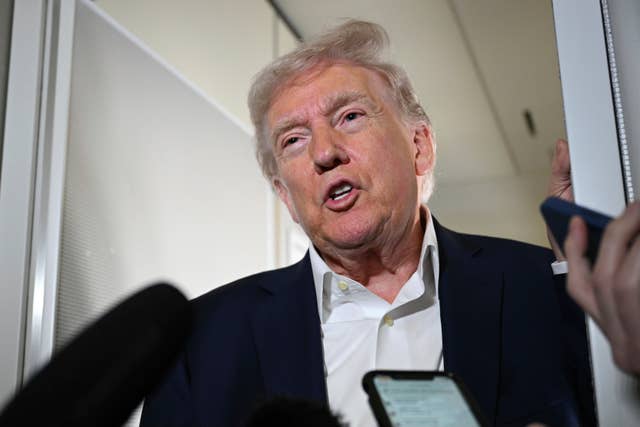
One thing it will not do is give up its programme entirely.
That makes the proposal of Israeli Prime Minister Benjamin Netanyahu of a so-called Libyan solution – “you go in, blow up the facilities, dismantle all the equipment, under American supervision, American execution” – unworkable.
Iranians including Ayatollah Ali Khamenei have held up what ultimately happened to the late Libyan dictator Muammar Gaddafi, who was killed with his own gun by rebels in the country’s 2011 Arab Spring uprising, as a warning about what can happen when you trust the United States.

